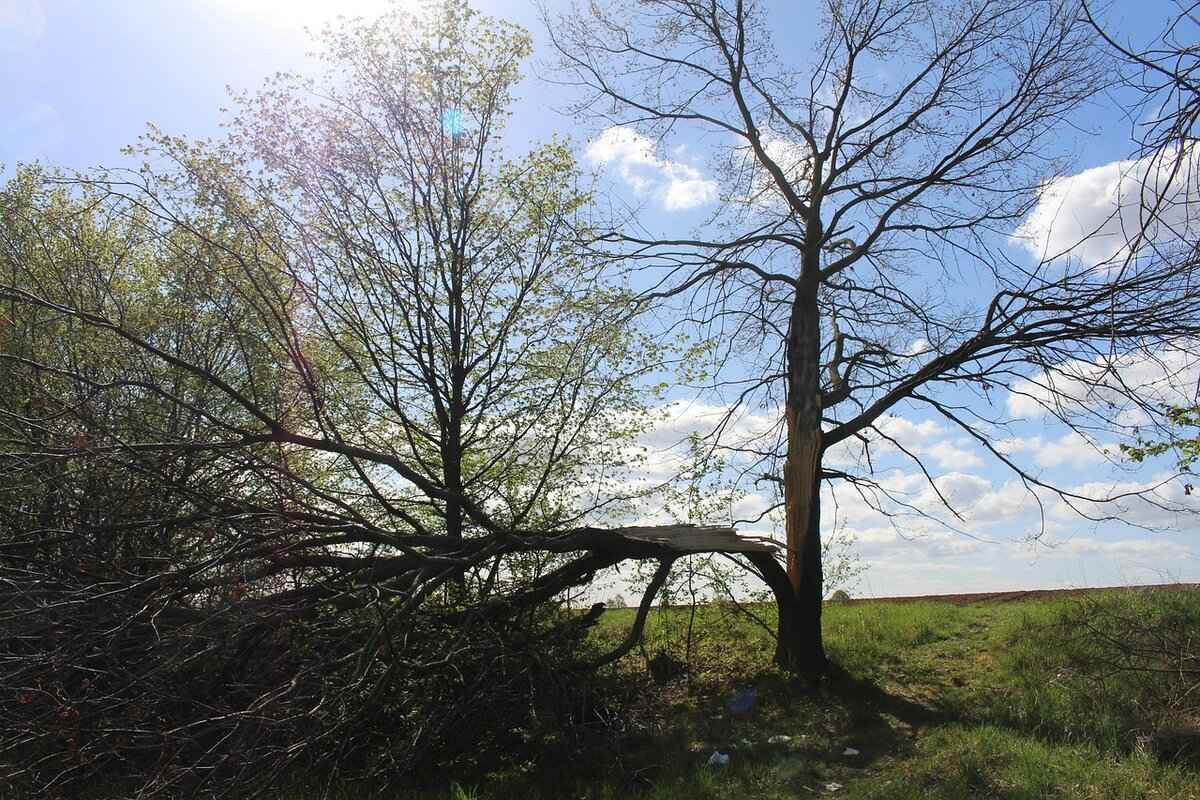This article delves into the complexities of alimony in divorce proceedings, answering frequently asked questions and offering insights into how courts decide on alimony awards. Understanding the intricacies of alimony is essential for both parties involved in a divorce, as it can significantly impact their financial futures.
What is Alimony?
Alimony, often referred to as spousal support, is a legal obligation for one spouse to provide financial support to the other post-divorce. Its primary purpose is to ensure that the lower-earning or non-working spouse can maintain a similar standard of living to what they experienced during the marriage.
Types of Alimony
- Temporary Alimony: This type is granted during the divorce process to help the lower-earning spouse manage expenses until a final decision is made.
- Rehabilitative Alimony: Aimed at supporting a spouse who needs time to acquire job skills or education to become self-sufficient.
- Permanent Alimony: This is awarded in long-term marriages where one spouse may not be able to become self-supporting.
- Lump-Sum Alimony: A one-time payment that eliminates the need for ongoing payments.
Factors Influencing Alimony Decisions
Courts consider several factors when determining alimony, including:
- Length of Marriage: Longer marriages often lead to higher alimony awards due to increased financial interdependence.
- Financial Needs and Abilities: Courts assess the requesting spouse’s financial needs and the other spouse’s ability to pay, including income and assets.
- Standard of Living: The lifestyle established during the marriage is a crucial consideration in determining the appropriate alimony amount.
How is Alimony Calculated?
The calculation of alimony varies by state, as there is no universal formula. Judges often rely on state guidelines, which may include:
- Income levels of both spouses
- Duration of the marriage
- Age and health of both parties
In many cases, spouses can negotiate alimony terms outside of court, allowing for a more tailored approach that meets their specific needs.
Modifying Alimony Orders
Alimony orders can be modified if there are significant changes in circumstances, such as:
- Job loss or income reduction
- Health issues affecting earning capacity
- Remarriage of the recipient spouse
To initiate a modification, the requesting spouse must file a motion in court, providing evidence of the changed circumstances, which may require a hearing.
Conclusion
Understanding alimony is vital for anyone navigating a divorce. By familiarizing themselves with the types, factors influencing decisions, and the process involved, both spouses can better prepare for the financial implications of their separation.

What is Alimony?
Alimony, often referred to as spousal support, represents a financial obligation that one spouse may be required to fulfill for the other following a divorce. The primary purpose of alimony is to provide financial assistance to a lower-earning or non-working spouse, enabling them to maintain a standard of living similar to what they experienced during the marriage. Understanding the nuances of alimony is essential for anyone navigating the complexities of divorce proceedings.
Alimony is not a one-size-fits-all arrangement; it varies significantly depending on the specific circumstances surrounding each divorce. The courts take into account various factors, such as the duration of the marriage, the financial needs of the requesting spouse, and the paying spouse’s ability to provide support. This comprehensive evaluation ensures that the alimony arrangement is fair and just.
There are several types of alimony, each designed to serve distinct purposes during and after the divorce process:
- Temporary Alimony: Awarded during the divorce proceedings, this type of alimony helps maintain the financial status of the requesting spouse until a final decision is made.
- Rehabilitative Alimony: Aimed at supporting a spouse who needs time to acquire education or skills necessary for self-sufficiency, this alimony is typically time-limited.
- Permanent Alimony: Granted in long-term marriages, this form of support continues indefinitely or until a significant change in circumstances occurs.
- Lump-Sum Alimony: This involves a one-time payment instead of ongoing support, often agreed upon during divorce negotiations.
Courts consider various factors when determining alimony, including:
- Length of Marriage: Generally, longer marriages result in higher alimony awards due to the greater financial interdependence established over time.
- Financial Needs: The requesting spouse’s financial needs and the other spouse’s ability to pay are crucial in assessing alimony obligations.
- Standard of Living: Courts aim to maintain a standard of living for the lower-earning spouse that is as close as possible to what was established during the marriage.
The calculation of alimony can vary significantly by state, as there is no universal formula. However, many states provide guidelines that assist judges in determining appropriate alimony amounts. These guidelines often consider:
- Income Levels: The income of both spouses is a primary factor in calculating alimony.
- Years Married: The length of the marriage can influence the amount and duration of alimony.
In some situations, spouses may negotiate their alimony terms outside of court, leading to more tailored agreements that better meet their individual needs.
Post-divorce, alimony orders are not set in stone. They can be modified if there is a significant change in circumstances, such as:
- Job Loss: If the paying spouse loses their job, they may request a reduction in alimony.
- Changes in Income: A substantial increase or decrease in income can warrant a modification.
- Remarriage: If the recipient spouse remarries, alimony may be terminated.
To initiate a modification, the requesting spouse must file a motion in court, presenting evidence of the changed circumstances. This process may involve a hearing where both parties can present their cases.
In conclusion, understanding alimony is vital for anyone experiencing divorce. Familiarity with its types, calculation methods, and potential for modification can empower individuals to navigate their legal obligations and rights effectively.

Types of Alimony
Understanding the various types of alimony is essential for anyone navigating the complexities of divorce. Alimony, or spousal support, is designed to provide financial assistance to one spouse following a divorce, and its structure can significantly impact both parties’ futures. Below, we delve into the different types of alimony, their purposes, and the circumstances under which they are awarded.
There are four primary types of alimony: temporary, rehabilitative, permanent, and lump-sum. Each type serves a distinct purpose and is awarded based on the specific circumstances surrounding the divorce.
- Temporary Alimony: This type is granted during the divorce proceedings to ensure that the lower-earning spouse can maintain a reasonable standard of living. It is typically awarded for a short duration, lasting until the divorce is finalized.
- Rehabilitative Alimony: Aimed at supporting a spouse who needs time to gain skills or education, rehabilitative alimony helps the recipient become self-sufficient. This type is often time-limited and is designed to assist the spouse in transitioning back into the workforce.
- Permanent Alimony: This form of alimony is awarded in long-term marriages, typically when one spouse is unable to support themselves due to age, disability, or other factors. Permanent alimony continues until the recipient remarries or either party passes away.
- Lump-Sum Alimony: Instead of ongoing payments, lump-sum alimony involves a one-time payment made to the recipient. This arrangement can provide financial certainty for both parties and is often negotiated during the divorce settlement.
Temporary alimony is crucial for individuals who find themselves in a vulnerable financial position during divorce proceedings. It allows the lower-earning spouse to cover essential expenses, such as housing, food, and healthcare, while the divorce is being resolved. Courts typically assess the financial needs of the requesting spouse and the paying spouse’s ability to provide support.
Rehabilitative alimony is particularly relevant for spouses who may have sacrificed their careers for the marriage or who need further education to become employable. This type of support is generally awarded for a specified period, allowing the recipient time to acquire necessary skills or education. Courts often require a detailed plan outlining how the recipient intends to achieve self-sufficiency.
Permanent alimony is less common but is awarded in cases where the marriage lasted a significant duration, and one spouse cannot reasonably support themselves. Factors influencing this decision include the length of the marriage, the recipient’s age and health, and the standard of living established during the marriage. Courts aim to ensure that the financial disparity between the spouses does not lead to undue hardship for the recipient.
Lump-sum alimony provides a one-time payment instead of ongoing support. This arrangement can be beneficial as it eliminates the uncertainty of future payments and allows both parties to move on with their lives. It is often negotiated during divorce settlements and can be structured to meet the specific financial needs of the recipient.
In conclusion, understanding the different types of alimony is vital for anyone facing divorce. Each type serves a unique purpose and is influenced by various factors, including the duration of the marriage, the financial needs of both spouses, and the standard of living established during the marriage. Consulting with a knowledgeable attorney can provide valuable insights and guidance tailored to individual circumstances, ensuring fair and equitable outcomes in divorce proceedings.
Temporary Alimony
plays a vital role during the divorce process, serving as a financial lifeline for the lower-earning or non-working spouse until a final settlement is achieved. This support is crucial for maintaining a semblance of stability and ensuring that the daily needs of the requesting spouse are met while the divorce proceedings unfold.
When a couple decides to separate, the financial implications can be overwhelming, especially for the spouse who may have been less involved in the workforce or who may have sacrificed career opportunities for the sake of the marriage. is designed to address these concerns, providing essential support to help cover living expenses such as housing, groceries, and healthcare.
To qualify for temporary alimony, the requesting spouse must demonstrate a clear need for financial assistance. Courts typically require evidence of:
- Financial Need: The spouse must prove that they cannot meet their living expenses without assistance.
- Ability to Pay: The court will assess the financial capacity of the other spouse to provide support, considering their income, assets, and overall financial situation.
The duration of temporary alimony varies, usually lasting until the divorce is finalized or until the court decides otherwise. Factors influencing this duration include:
- The complexity of the divorce proceedings.
- The financial circumstances of both parties.
- State-specific laws governing alimony.
Court decisions regarding temporary alimony are influenced by several factors:
- Length of Marriage: Longer marriages may justify higher alimony amounts due to greater financial interdependence.
- Standard of Living: Courts consider the lifestyle established during the marriage, aiming to maintain a similar standard for both spouses.
- Financial Contributions: Contributions to the marriage, whether financial or non-financial, are taken into account.
It’s essential to understand how temporary alimony differs from other forms of spousal support:
| Type of Alimony | Purpose | Duration |
|---|---|---|
| Temporary Alimony | Support during divorce proceedings | Until divorce finalization |
| Rehabilitative Alimony | Support for education or job training | Until self-sufficiency is achieved |
| Permanently Alimony | Long-term support for the dependent spouse | Indefinite, subject to modification |
The process of seeking temporary alimony involves filing a motion with the court, where the requesting spouse must provide:
- Documentation of financial need.
- Evidence of the other spouse’s ability to pay.
- A clear outline of monthly expenses and income.
In conclusion, serves as an essential mechanism during divorce proceedings, ensuring that the financial needs of a spouse are met while the legal process unfolds. Understanding its eligibility criteria, duration, and the factors influencing its determination can empower individuals navigating the complexities of divorce.
Eligibility for Temporary Alimony
When navigating the complexities of divorce, one of the most pressing concerns for many spouses is financial stability during the separation process. This is where temporary alimony comes into play. Understanding the eligibility criteria for temporary alimony is essential for those seeking support during this challenging time.
Temporary alimony, also known as spousal support, is a financial arrangement designed to provide interim assistance to a spouse who may be at a financial disadvantage during the divorce proceedings. The primary objective of this support is to maintain a standard of living similar to what was established during the marriage, at least until the divorce is finalized.
To qualify for temporary alimony, the requesting spouse must demonstrate two critical factors: financial need and the other spouse’s ability to pay. Courts take a comprehensive approach in evaluating these factors, which may include:
- Financial Need: The requesting spouse must show that they lack sufficient income or resources to meet their basic living expenses. This can include housing, food, healthcare, and other essential costs.
- Ability to Pay: The court will assess the financial situation of the other spouse to determine if they have the means to provide support. This includes examining their income, assets, and overall financial obligations.
In assessing financial need, courts may consider various elements such as:
- The requesting spouse’s current income and expenses.
- Any debts or financial obligations that may impact their ability to sustain themselves.
- The standard of living established during the marriage, which can significantly influence the expected support amount.
Simultaneously, the ability to pay is evaluated through:
- The other spouse’s income, including salary, bonuses, and any passive income.
- Their assets, which may include real estate, investments, and savings.
- Existing financial obligations, such as child support or other alimony payments, which could impact their capacity to provide additional support.
Courts typically require substantial documentation from both parties to make an informed decision. This can include tax returns, pay stubs, bank statements, and detailed lists of monthly expenses. The more evidence presented, the clearer the picture the court can see regarding both spouses’ financial situations.
It is also important to note that the process for requesting temporary alimony can vary by jurisdiction. Some states may have specific forms or procedures that must be followed, while others may allow for more flexibility in how requests are made. Consulting with a legal professional can provide invaluable guidance in navigating these complexities.
Ultimately, the court’s primary goal is to ensure fairness and support the requesting spouse’s transition during the divorce process. Temporary alimony is not meant to be a long-term solution but rather a means to provide immediate financial relief while the divorce is finalized. Understanding the eligibility criteria and the factors that influence the court’s decision can empower spouses to advocate effectively for their financial needs.
Duration of Temporary Alimony
When navigating the complexities of divorce, one of the critical considerations is the issue of temporary alimony. This financial support is designed to assist a spouse during the divorce proceedings, ensuring that they can maintain a reasonable standard of living while awaiting a final settlement. Understanding the is essential for both parties involved in the divorce.
What is Temporary Alimony?
Temporary alimony is a form of spousal support awarded by the court during the divorce process. It aims to provide financial assistance to the lower-earning or non-working spouse until a final divorce decree is issued. This type of alimony is crucial for individuals who may not have immediate access to funds or resources to support themselves during what can be a financially challenging time.
Typically, temporary alimony lasts until the divorce is finalized or until the court decides otherwise. However, the duration can vary significantly based on several factors:
- State Laws: Different states have varying regulations regarding alimony. Some states may have specific guidelines that dictate the duration of temporary support, while others may leave it to the discretion of the judge.
- Circumstances of the Couple: The unique circumstances surrounding each couple’s situation can influence how long temporary alimony is awarded. For instance, if one spouse is making significant efforts to become self-sufficient, the court may set a shorter duration.
- Financial Needs: The financial needs of the requesting spouse play a crucial role in determining how long temporary alimony will be granted. If the spouse demonstrates a compelling need for ongoing support, the court may extend the duration.
- Judicial Discretion: Ultimately, the judge has the final say in how long temporary alimony lasts. They will consider all relevant factors, including the financial situation of both spouses, the length of the marriage, and any potential changes in circumstances.
Importance of Temporary Alimony Duration
The duration of temporary alimony is not merely a technicality; it has real-world implications. It allows the receiving spouse to plan their finances effectively and provides a sense of stability during a tumultuous time. Furthermore, understanding the expected duration can help both parties prepare for the transition to post-divorce life.
Modifying Temporary Alimony Duration
In some instances, either party may seek to modify the duration of temporary alimony. If there are significant changes in circumstances—such as a job loss, unexpected medical expenses, or other financial hardships—either spouse can petition the court for a reevaluation. It is essential to present substantial evidence to support such requests, as courts require clear justification for any modifications to alimony agreements.
In conclusion, while temporary alimony is a critical component of the divorce process, its duration is variable and influenced by multiple factors. Understanding these elements can help both spouses navigate the complexities of financial support during divorce proceedings more effectively.
Rehabilitative Alimony
serves as a crucial financial support mechanism for a spouse who requires time to acquire the necessary skills or education to achieve self-sufficiency. This type of alimony is typically time-limited, providing the recipient with a structured opportunity to become financially independent after a divorce.
In many cases, rehabilitative alimony is awarded to a spouse who may have sacrificed their career or educational opportunities during the marriage. For instance, a partner who stayed home to raise children might find themselves at a disadvantage in the job market post-divorce. The goal of rehabilitative alimony is to help such individuals transition back into the workforce, allowing them to gain the skills or education needed to support themselves.
The duration of rehabilitative alimony is often determined by the specific needs of the recipient. Courts typically set a defined period during which the recipient can pursue educational programs, vocational training, or other skill-enhancing opportunities. For example, a court may award rehabilitative alimony for a period of two years, during which the recipient is expected to complete a degree or certification program.
When determining the amount and duration of rehabilitative alimony, courts consider several factors, including:
- The recipient’s current financial situation: This includes income, savings, and any other financial resources.
- The potential for future earnings: Courts evaluate the recipient’s ability to earn a living after completing their education or training.
- The length of the marriage: Longer marriages may result in more substantial rehabilitative support, especially if one spouse has been out of the workforce for an extended period.
- The educational or training programs pursued: Courts assess whether the proposed programs are reasonable and likely to lead to gainful employment.
It is important to note that rehabilitative alimony is not intended to be a permanent solution. Instead, it is a temporary support designed to facilitate a transition toward independence. Recipients are typically expected to take reasonable steps to improve their financial situation, such as actively seeking employment or enrolling in educational programs.
In some cases, the paying spouse may seek to modify or terminate rehabilitative alimony if they believe the recipient is not making a genuine effort to achieve self-sufficiency. Courts are generally open to reviewing such requests, but the burden of proof lies with the paying spouse to demonstrate that the recipient is not adhering to the agreed-upon plan.
Ultimately, rehabilitative alimony plays a significant role in ensuring that individuals have the necessary support to rebuild their lives after divorce. By providing financial assistance during a critical period, rehabilitative alimony helps to level the playing field, allowing recipients to pursue opportunities that may have been previously unavailable to them.

Factors Influencing Alimony Decisions
Alimony, also known as spousal support, plays a crucial role in divorce proceedings, ensuring that one spouse can maintain a reasonable standard of living after separation. The decision to award alimony is influenced by various factors, which the court carefully considers to ensure a fair outcome. Understanding these factors is essential for both parties involved in a divorce.
Length of Marriage
The duration of the marriage is one of the most significant factors affecting alimony decisions. Generally, the longer the marriage, the more likely it is that alimony will be awarded. This is due to the increased financial interdependence that develops over time. For instance, in a long-term marriage, one spouse may have sacrificed their career to support the family or raise children, making it more challenging for them to achieve financial independence post-divorce.
Financial Status of Both Spouses
Another critical factor is the financial status of both spouses. Courts will evaluate the income, assets, and overall financial health of each party. This assessment includes examining pay stubs, tax returns, and any other documentation that demonstrates financial capability. The court aims to ensure that the requesting spouse receives adequate support while also considering the paying spouse’s ability to provide that support without facing undue hardship.
Standard of Living Established During the Marriage
The standard of living that the couple enjoyed during the marriage significantly influences alimony awards. Courts strive to allow the lower-earning spouse to maintain a lifestyle comparable to that which they experienced during the marriage. This consideration can lead to higher alimony payments, particularly in cases where one spouse was the primary breadwinner.
Age and Health of the Spouses
The age and health of both spouses can also play a role in determining alimony. A spouse who is older or has health issues may require more support to achieve financial stability. Conversely, a younger spouse with no health problems may be expected to seek employment and become self-sufficient more quickly.
Contributions to the Marriage
Non-financial contributions to the marriage, such as homemaking and child-rearing, are also considered. Courts recognize that these contributions are valuable and can impact the earning potential of the spouse who made them. For example, a spouse who stayed home to raise children may find it challenging to re-enter the workforce, which could justify a longer duration or higher amount of alimony.
Custodial Responsibilities
If children are involved, the custodial responsibilities of each parent can affect alimony decisions. A parent who has primary custody may require additional support to cover childcare costs and maintain the household. Courts often consider the best interests of the children when determining financial arrangements, which can include alimony payments.
Behavior of the Parties
The conduct of both spouses during the marriage may also influence alimony decisions. For example, if one spouse engaged in egregious behavior, such as infidelity or financial misconduct, the court might take this into account when determining the fairness of alimony awards. However, this is not always a decisive factor, as many jurisdictions focus primarily on financial needs and the circumstances surrounding the divorce.
State Laws and Guidelines
Lastly, state laws and guidelines play a vital role in alimony decisions. Each state has its own rules regarding how alimony is calculated and awarded, which can vary significantly. It is essential for individuals to understand their state’s specific laws, as these will dictate the potential for alimony and the amount that may be awarded.
In conclusion, several factors influence a court’s decision to award alimony, including the length of the marriage, the financial status of both spouses, and the standard of living established during the marriage. Understanding these factors can help individuals navigate the complexities of divorce and spousal support.
Length of Marriage
When navigating the complexities of divorce, one of the most critical elements that courts consider is the . This factor plays a pivotal role in determining alimony, as it often reflects the degree of financial interdependence that has developed between the spouses over time.
In many jurisdictions, the general rule is that the longer the marriage, the more likely it is that the court will award alimony. This is primarily because lengthy marriages tend to create a shared lifestyle and financial obligations that can be difficult to untangle. As a result, the financial support awarded is often higher in cases of long-term marriages.
For instance, a marriage that has lasted for 20 years or more is typically viewed by the court as one where both parties have invested significantly in each other’s lives, careers, and well-being. This investment can manifest in various ways, such as one spouse sacrificing their career to support the other’s professional endeavors or to raise children. As such, the court may see a compelling reason to ensure that the lower-earning spouse is supported post-divorce.
Conversely, marriages of shorter duration may lead to minimal or no alimony awards. In these cases, courts often reason that the spouses have not developed the same level of financial interdependence, and thus, the need for support is less pronounced. For example, in a marriage lasting only a few years, both parties may still retain their individual financial identities and capabilities, making it easier for them to separate their finances without undue hardship.
Moreover, the duration of marriage can also affect the type of alimony awarded. In longer marriages, courts may lean towards granting permanent alimony, which provides ongoing support until a significant change occurs, such as the recipient remarrying. In contrast, shorter marriages might result in temporary alimony or a lump-sum payment aimed at assisting the lower-earning spouse during the transition period following the divorce.
It is also essential to note that while the length of marriage is a significant factor, it is not the only one. Courts will look at other elements, such as the financial needs of the requesting spouse, the earning capacity of both parties, and the standard of living established during the marriage. Each case is unique, and judges have the discretion to weigh these factors according to the specifics of the situation.
In conclusion, the length of marriage is a foundational aspect that influences alimony decisions in divorce cases. Understanding how this factor interacts with other elements can help individuals prepare for the potential outcomes of their divorce proceedings. It is advisable for those facing divorce to consult with an experienced attorney who can provide tailored guidance based on the unique circumstances of their marriage.
Financial Needs and Abilities
In the realm of divorce proceedings, the assessment of financial needs and abilities plays a pivotal role in determining alimony awards. Courts approach this evaluation with a comprehensive lens, focusing on both the requesting spouse’s financial necessities and the paying spouse’s capacity to fulfill those obligations. Understanding how these factors are analyzed can be crucial for anyone navigating the complexities of divorce.
The financial needs of the requesting spouse encompass various elements, including daily living expenses, housing costs, and any additional financial obligations such as child support or debt repayments. Courts meticulously review the requesting spouse’s current financial situation, which may involve:
- Monthly Income: This includes wages, bonuses, and any other sources of income.
- Living Expenses: Essential costs such as rent or mortgage payments, utilities, groceries, and healthcare.
- Debt Obligations: Any outstanding loans or credit card debts that must be serviced.
- Childcare Costs: Expenses related to children, including education, daycare, and extracurricular activities.
In tandem with assessing financial needs, courts also evaluate the ability of the other spouse to pay alimony. This evaluation takes into account:
- Income Sources: The paying spouse’s salary, bonuses, and other income streams are scrutinized.
- Assets: The court considers both liquid assets (like cash and stocks) and non-liquid assets (like real estate and retirement accounts).
- Potential Earning Capacity: Courts look at the individual’s job skills, education, and job market conditions to determine if they can increase their income.
- Employment Status: If the paying spouse is unemployed or underemployed, the court may consider their previous earnings and employment history.
Several factors influence how courts assess financial needs and abilities:
- Length of Marriage: Longer marriages may lead to greater financial interdependence, affecting both spouses’ financial needs and abilities.
- Standard of Living: Courts aim to maintain a similar standard of living for both spouses post-divorce, which can impact alimony calculations.
- Health Considerations: Any medical conditions affecting earning capacity or financial needs are taken into account.
- Contributions to the Marriage: Non-monetary contributions, such as homemaking or supporting the other spouse’s career, may also be factored in.
To facilitate a fair assessment, both spouses are encouraged to provide comprehensive documentation of their financial situations. This may include:
- Pay Stubs and Tax Returns: Essential for verifying income.
- Bank Statements: To assess savings and spending habits.
- Expense Reports: Detailed accounts of monthly living expenses.
- Property Deeds and Titles: To evaluate asset ownership and value.
Ultimately, the court’s goal is to ensure that both parties can maintain a reasonable standard of living post-divorce while considering the equitable distribution of financial responsibilities. Understanding the intricate balance between financial needs and abilities can empower individuals to navigate this challenging process more effectively.

How is Alimony Calculated?
When navigating the complexities of divorce, understanding how alimony is calculated is crucial for both parties involved. Alimony, or spousal support, is not determined by a single formula; rather, it varies significantly from state to state. Each jurisdiction has its own set of guidelines that judges may consider when making decisions regarding alimony awards. This article delves into the factors influencing alimony calculations, the role of state guidelines, and the discretion judges have in these matters.
Many states provide alimony guidelines that serve as a starting point for calculations. These guidelines often take into account:
- Income Levels: The income of both spouses is a primary consideration.
- Length of Marriage: The duration of the marriage can heavily influence the amount and duration of alimony.
- Standard of Living: Courts aim to maintain a similar standard of living for the recipient spouse as experienced during the marriage.
However, it’s important to note that these guidelines are not absolute. Judges have the authority to deviate from them based on the unique circumstances of each case.
While state guidelines provide a framework, judges retain significant discretion in determining alimony amounts. This discretion allows them to consider additional factors, such as:
- Financial Needs: The requesting spouse’s financial needs and the other spouse’s ability to pay are critical.
- Contributions to the Marriage: Non-monetary contributions, such as homemaking or child-rearing, are also considered.
- Health and Age: The physical health and age of both spouses can impact the ability to work and earn income.
In many cases, spouses may choose to negotiate alimony terms outside of court. This approach can lead to more customized arrangements that reflect the specific needs and circumstances of both parties. Negotiated settlements often provide flexibility and can be less contentious than court-ordered alimony.
Once alimony is awarded, it is not set in stone. Changes in circumstances can lead to modifications of alimony orders. Common grounds for modification include:
- Job Loss: If the paying spouse loses their job, they may request a reduction.
- Income Changes: A significant increase or decrease in income can prompt a reevaluation of alimony.
- Remarriage: If the recipient spouse remarries, this can also impact alimony obligations.
To initiate a modification, the requesting spouse must file a motion in court. This process involves:
- Gathering Evidence: Presenting substantial evidence of changed circumstances is crucial.
- Court Hearing: A hearing may be required where both parties can present their arguments.
Ultimately, the court will evaluate the evidence and decide whether to modify the existing alimony order.
Understanding how alimony is calculated can empower individuals going through a divorce to navigate their financial futures more effectively. By being informed about state guidelines, the factors influencing judicial discretion, and the potential for modifications, spouses can make better decisions that align with their needs.
State Guidelines and Formulas
In the realm of divorce proceedings, understanding the intricacies of alimony is essential for both parties involved. One significant aspect of alimony is how courts utilize state guidelines and formulas to determine the amount of financial support one spouse may owe the other. This section delves into the various elements that influence these calculations and the discretion judges hold in their decisions.
Many states have established guidelines that serve as a framework for determining alimony amounts. These guidelines typically consider several factors, including:
- Income Levels: The earnings of both spouses are crucial in assessing the ability to pay and the need for support.
- Length of Marriage: Longer marriages often result in higher alimony awards, reflecting the financial interdependence developed over time.
- Standard of Living: Courts consider the lifestyle established during the marriage to determine what financial support is necessary to maintain a similar standard post-divorce.
- Age and Health: The physical condition and age of both spouses can impact the ability to earn income and the need for support.
While state guidelines provide a useful starting point, judges have the discretion to deviate from these recommendations based on the unique circumstances of each case. This means that even if a guideline suggests a specific amount, a judge may adjust the award if they believe it is justified. Factors that might lead to such adjustments include:
- Changes in Financial Status: If one spouse experiences a significant increase or decrease in income, the court may modify the alimony award accordingly.
- Behavior During Marriage: Instances of misconduct, such as infidelity or financial irresponsibility, can influence a judge’s decision.
- Employment Opportunities: A spouse’s potential to secure employment or further their education may also impact the amount and duration of alimony.
In addition to guidelines, some states employ specific formulas to calculate alimony. These formulas often take into account:
- Income Ratio: A common formula might involve a percentage of the higher-earning spouse’s income, adjusted based on the length of the marriage.
- Combined Income: The total income of both spouses can be used to determine the relative financial needs and obligations.
However, it is essential to note that these formulas are not universally applicable and can vary significantly from state to state.
In many cases, spouses can negotiate alimony terms without court intervention. This process allows for more flexibility, as both parties can agree on an amount that reflects their specific circumstances and needs, rather than relying solely on state guidelines or formulas. Such negotiated settlements can be beneficial in fostering cooperation and reducing conflict during an already challenging time.
Understanding state guidelines and formulas for alimony is crucial for anyone navigating a divorce. While these frameworks provide a basis for determining financial support, the discretion exercised by judges means that outcomes can vary widely. It is advisable for individuals to seek legal counsel to effectively navigate these complexities and ensure their rights are protected throughout the divorce process.
Negotiated Settlements
When navigating the complexities of divorce, one of the most critical aspects to consider is alimony, or spousal support. While many individuals think that alimony decisions are solely in the hands of the court, it is essential to recognize that spouses have the option to negotiate alimony terms outside of court. This process can provide a more personalized approach to financial support and can lead to outcomes that are mutually beneficial.
Negotiated settlements for alimony allow both parties to come together to discuss and agree upon the terms of support. This method can be advantageous for several reasons:
- Flexibility: Unlike court-mandated decisions, negotiated settlements can be tailored to fit the unique circumstances of both spouses. This flexibility can result in arrangements that better reflect their individual needs.
- Reduced Conflict: Engaging in negotiations can minimize the adversarial nature of divorce proceedings. By working collaboratively, spouses may maintain a more amicable relationship, which can be particularly important if children are involved.
- Time and Cost Efficiency: Court proceedings can be lengthy and costly. By negotiating alimony terms outside of court, couples can save both time and money, allowing them to move forward with their lives more quickly.
Negotiating alimony typically involves several steps:
- Initial Discussions: Both spouses should openly communicate their financial situations, needs, and expectations regarding alimony. Transparency is crucial in these discussions.
- Consultation with Professionals: It is often beneficial to involve legal and financial advisors. Attorneys can provide insights into what might be deemed fair and reasonable based on state laws.
- Drafting an Agreement: Once both parties reach a consensus, they should draft a formal agreement outlining the terms of the alimony arrangement. This document should detail the amount, duration, and any conditions attached to the support.
- Legal Review: Having the agreement reviewed by legal counsel ensures that it is enforceable and compliant with state laws.
Several factors should be considered when negotiating alimony:
- Duration of the Marriage: The length of the marriage can significantly influence the amount and duration of alimony. Longer marriages may warrant more substantial support.
- Financial Needs: The financial needs of the requesting spouse should be assessed, including their current income, expenses, and future earning potential.
- Standard of Living: The standard of living established during the marriage can serve as a benchmark for determining alimony amounts.
- Ability to Pay: The paying spouse’s financial situation is also critical. They must have the capacity to provide the agreed-upon support without jeopardizing their financial stability.
Opting for a negotiated settlement can lead to several benefits:
- Custom Solutions: Couples can create unique solutions that address their specific circumstances, enhancing satisfaction for both parties.
- Less Stress: The negotiation process can be less stressful than court battles, allowing both spouses to focus on healing and moving forward.
- Control Over Outcomes: Negotiated settlements empower spouses to have a say in the terms of their support, rather than leaving the decision entirely up to a judge.
In conclusion, while alimony can be a contentious issue in divorce proceedings, negotiating settlements offers a viable alternative that can lead to more satisfactory outcomes for both parties. By prioritizing open communication and seeking professional guidance, spouses can craft agreements that reflect their individual needs and circumstances.

Modifying Alimony Orders
is a crucial aspect of post-divorce financial arrangements. Alimony, or spousal support, is not set in stone and can be adjusted based on changes in circumstances. This article delves into the details of how alimony orders can be modified, the grounds for modification, and the process involved.
After a divorce, life circumstances can change significantly. These changes may warrant a reassessment of alimony obligations. Understanding the conditions under which alimony can be modified is essential for both payers and recipients.
There are several common grounds for modifying an alimony order:
- Job Loss: If the paying spouse loses their job or experiences a significant reduction in income, they may seek to lower their alimony payments.
- Changes in Income: A substantial increase or decrease in either spouse’s income can affect the ability to pay or the need for alimony.
- Remarriage of the Recipient: If the recipient spouse remarries, this can lead to a modification or termination of alimony obligations.
- Health Issues: If either spouse encounters serious health problems that affect their financial situation, this may also provide grounds for modification.
The process for modifying alimony orders involves several steps:
- Filing a Motion: The spouse seeking modification must file a motion in the appropriate court.
- Providing Evidence: The requesting spouse must present substantial evidence demonstrating the change in circumstances that justifies the modification.
- Court Hearing: In many cases, a court hearing will be scheduled where both parties can present their arguments and evidence.
- Judge’s Decision: After reviewing the evidence, the judge will make a determination regarding the modification of the alimony order.
It’s important to note that modifications are not granted automatically. The court must find that the change in circumstances is significant and that it warrants a modification. Additionally, the laws governing alimony modifications can vary significantly by state, so consulting with a knowledgeable attorney is advisable.
In some cases, parties may agree to modify alimony terms outside of court. This can be beneficial as it allows both parties to negotiate terms that suit their new circumstances without the need for a lengthy court process.
Conclusion: Modifying alimony orders is a vital process that reflects the evolving financial realities of divorced couples. By understanding the grounds for modification and the necessary steps, both payers and recipients can navigate this aspect of their post-divorce lives more effectively.
Grounds for Modification
In the realm of alimony, modifications to existing orders can be necessary due to various life changes. Understanding the grounds for these modifications is essential for both paying and receiving spouses. Courts recognize that circumstances can evolve, necessitating adjustments to the original alimony agreements.
One of the most common grounds for modifying alimony is a change in financial status. This can occur when the paying spouse experiences a significant decrease in income, whether due to job loss, a reduction in hours, or other financial hardships. Conversely, if the recipient spouse obtains a substantial increase in income, such as a new job or promotion, this too can warrant a review and potential reduction of alimony payments.
- Job Loss: If the paying spouse loses their job and cannot find comparable employment, they may petition the court for a reduction in alimony.
- Health Issues: Serious health problems can impact a spouse’s ability to work or earn an income. If the paying spouse becomes incapacitated or the recipient incurs significant medical expenses, these factors can lead to modifications.
- Change in Living Situation: If the recipient spouse moves in with a new partner or spouse, the court may consider this a change in circumstances that could justify a reduction or termination of alimony payments.
Additionally, remarriage of the recipient spouse is a significant factor in alimony modification. Courts often view remarriage as a change in financial circumstances, as the new partner may provide financial support. In such cases, the paying spouse may seek to terminate or reduce their alimony obligations.
When pursuing a modification, it is critical to present substantial evidence to support the claim. This may include:
- Pay stubs or tax returns demonstrating income changes.
- Medical records or bills to substantiate health-related financial burdens.
- Documentation of the recipient’s new living arrangements or financial status.
The process for modifying alimony typically requires the requesting party to file a motion in the court where the original alimony order was issued. This motion should detail the grounds for modification and include all relevant evidence to support the claim. A court hearing may be scheduled, during which both parties can present their arguments and evidence.
It is important to note that modifications are not guaranteed. Courts will carefully evaluate the evidence and consider the overall impact of the proposed changes on both parties. Judges aim to ensure that any modifications align with the principles of fairness and equity, taking into account the needs of the recipient and the ability of the paying spouse to comply with the modified order.
In conclusion, understanding the grounds for modifying alimony is crucial for navigating post-divorce financial obligations. Whether due to changes in financial status, health issues, or shifts in living situations, being informed and prepared can significantly impact the outcome of modification requests.
Process for Modifying Alimony
When it comes to modifying alimony orders, the process is both structured and critical for ensuring that the financial obligations reflect current circumstances. The requesting spouse must initiate this process by filing a motion in court. This legal step is essential, as it formally notifies the court and the other spouse of the request for modification.
The first step in the process involves the filing of the motion, where the requesting spouse must clearly outline the reasons for the modification. Common reasons may include a significant change in income, a job loss, or other financial hardships that affect the ability to pay alimony. Additionally, the recipient spouse’s circumstances, such as remarriage or an increase in income, can also warrant a review of the existing alimony order.
Once the motion is filed, the court will typically set a date for a hearing. During this hearing, both spouses will have the opportunity to present evidence supporting their claims. This evidence may include:
- Pay stubs or tax returns to demonstrate income changes
- Medical records if health issues have arisen
- Documentation of living expenses and financial obligations
The judge will carefully consider all evidence presented, weighing the financial needs of the requesting spouse against the ability of the paying spouse to meet those needs. It is crucial that both parties come prepared with comprehensive documentation, as the court relies heavily on this information to make an informed decision.
In some instances, the court may also consider the standard of living established during the marriage, as well as the duration of the marriage itself. These factors can significantly influence the judge’s decision on whether to modify the alimony amount and to what extent.
After the hearing, the judge will issue a ruling on the motion. If the modification is granted, the new alimony terms will be documented in a court order, which both parties must adhere to moving forward. If the request is denied, the original alimony order remains in effect.
It is important to note that the modification process can vary by state, and local laws may impose specific requirements or guidelines that must be followed. Therefore, it is advisable for individuals seeking to modify alimony to consult with a qualified attorney who can provide guidance tailored to their unique situation.
In summary, modifying an alimony order is a significant legal process that requires careful preparation and a clear demonstration of changed circumstances. By understanding the steps involved and the evidence needed, spouses can navigate this process more effectively, ensuring that their financial obligations reflect their current realities.
Frequently Asked Questions
- What factors determine alimony payments?
Alimony payments are influenced by several factors, including the length of the marriage, the financial needs of the requesting spouse, the ability of the other spouse to pay, and the standard of living established during the marriage.
- Can alimony be modified after the divorce?
Yes, alimony can be modified if there is a significant change in circumstances, such as job loss or changes in income. The requesting spouse must file a motion in court to initiate the modification process.
- What is the difference between temporary and rehabilitative alimony?
Temporary alimony is provided during the divorce process to support a spouse until the final settlement, while rehabilitative alimony is designed to help a spouse gain skills or education for future self-sufficiency.
- Are there any guidelines for calculating alimony?
Many states have guidelines that help determine alimony amounts based on factors like income levels and the duration of the marriage. However, judges have the discretion to deviate from these guidelines based on specific case circumstances.
- What should I do if I believe my alimony amount is unfair?
If you feel your alimony amount is unjust, you can seek legal advice to explore options for modification or negotiation. It’s essential to gather evidence supporting your case for a fair outcome.















